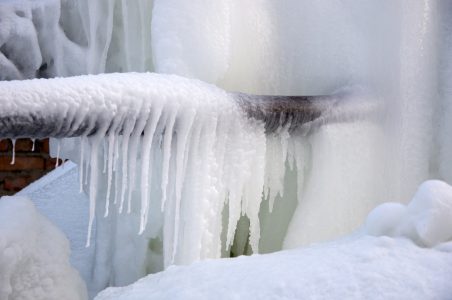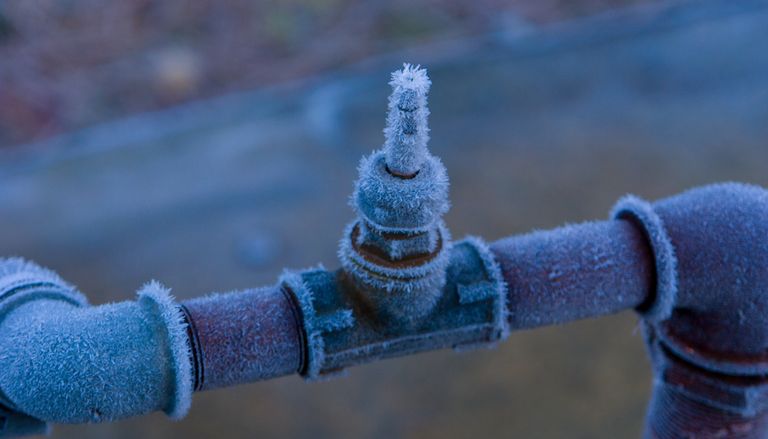Are you hunting for content about Preventing and dealing with frozen pipes?

Winter can wreak havoc on your plumbing, specifically by freezing pipelines. Below's how to prevent it from occurring and what to do if it does.
Introduction
As temperatures decrease, the danger of frozen pipes boosts, potentially resulting in expensive repair work and water damage. Understanding how to stop icy pipelines is important for property owners in cold climates.
Prevention Tips
Protecting susceptible pipes
Wrap pipelines in insulation sleeves or make use of warm tape to safeguard them from freezing temperatures. Concentrate on pipes in unheated or external areas of the home.
Home heating methods
Keep interior rooms appropriately heated up, especially areas with pipes. Open cupboard doors to permit warm air to distribute around pipelines under sinks.
How to determine icy pipelines
Search for reduced water circulation from taps, unusual odors or sounds from pipelines, and noticeable frost on revealed pipelines.
Long-Term Solutions
Structural adjustments
Think about rerouting pipelines far from exterior walls or unheated areas. Add additional insulation to attic rooms, cellars, and crawl spaces.
Updating insulation
Invest in high-grade insulation for pipelines, attic rooms, and wall surfaces. Proper insulation helps maintain consistent temperature levels and lowers the threat of icy pipes.
Safeguarding Outdoor Pipes
Yard hose pipes and outdoor taps
Detach and drain pipes yard hoses prior to wintertime. Install frost-proof faucets or cover outdoor taps with insulated caps.
Recognizing Frozen Pipelines
What causes pipes to ice up?
Pipes ice up when exposed to temperatures listed below 32 ° F (0 ° C) for extended periods. As water inside the pipelines ices up, it expands, putting pressure on the pipe walls and potentially triggering them to rupture.
Threats and damages
Frozen pipelines can bring about water system disturbances, home damages, and costly fixings. Ruptured pipelines can flooding homes and create extensive structural damages.
Indicators of Frozen Piping
Recognizing icy pipelines early can avoid them from rupturing.
What to Do If Your Pipes Freeze
Immediate activities to take
If you presume frozen pipes, maintain taps open to relieve stress as the ice melts. Use a hairdryer or towels taken in hot water to thaw pipelines slowly.
Conclusion
Protecting against frozen pipelines needs aggressive procedures and quick actions. By understanding the causes, indications, and preventive measures, home owners can secure their plumbing throughout cold weather.
Helpful Tips to Prevent Frozen Pipes this Winter
UNDERSTANDING THE BASICS: WHY PIPES FREEZE AND WHY IT’S A PROBLEM
Water freezing inside pipes is common during the winter months, but understanding why pipes freeze, and the potential problems it can cause is crucial in preventing such incidents. This section will delve into the basics of why pipes freeze and the associated problems that may arise.
THE SCIENCE BEHIND FROZEN PIPES
When water reaches freezing temperatures, it undergoes a physical transformation and solidifies into ice. This expansion of water as it freezes is the primary reason pipes can burst. As the water inside the pipe freezes, it expands, creating immense pressure on the walls. If the pressure becomes too great, the pipe can crack or rupture, leading to leaks and water damage.
FACTORS THAT CONTRIBUTE TO PIPE FREEZING
Low Temperatures: Extremely cold weather, especially below freezing, increases the risk of pipes freezing. Uninsulated or Poorly Insulated Pipes: Pipes located in unheated areas, such as basements, crawl spaces, or attics, are more prone to freezing. Insufficient insulation or lack of insulation altogether exacerbates the problem. Exterior Wall Exposure: Pipes running along exterior walls are susceptible to freezing as they encounter colder temperatures outside. Lack of Heating or Temperature Regulation: Inadequate heating or inconsistent temperature control in your home can contribute to frozen pipes. PROBLEMS CAUSED BY FROZEN PIPES
- Pipe Bursting: As mentioned earlier, the expansion of water as it freezes can cause pipes to burst, resulting in significant water damage.
- Water Damage: When pipes burst, it can lead to flooding and water damage to your property, including walls, ceilings, flooring, and personal belongings.
- Structural Damage: Prolonged exposure to water from burst pipes can compromise the structural integrity of your home, leading to costly repairs.
- Mold and Mildew Growth: Excess moisture from water damage can create a favorable environment for mold and mildew growth, posing health risks to occupants.
- Disrupted Water Supply: Frozen pipes can also result in a complete or partial loss of water supply until the issue is resolved.
WHY CERTAIN PIPES ARE MORE PRONE TO FREEZING
- Location: Pipes located in unheated or poorly insulated areas, such as basements, crawl spaces, attics, or exterior walls, are at higher risk of freezing.
- Exterior Pipes: Outdoor pipes, such as those used for irrigation or exposed plumbing, are particularly vulnerable to freezing as they are directly exposed to the elements.
- Supply Lines: Pipes that carry water from the main water supply into your home, including the main water line, are critical to protect as freezing in these lines can affect your entire plumbing system.
- Underground Pipes: Pipes buried underground, such as those connected to sprinkler systems or outdoor faucets, can be susceptible to freezing if not properly insulated.
https://busybusy.com/blog/helpful-tips-to-prevent-frozen-pipes-this-winter/

As an avid person who reads about How to Prevent Your Pipes From Freezing, I was thinking sharing that piece of content was valuable. Sharing is good. One never knows, you might be helping someone out. I take joy in your readership.
Call Today